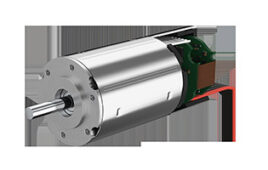Concrete pillars may be able to take comfort from stick-on wraps in order to prevent further cracking and extend a structure’s lifespan. Developed by the Nanyang Technological University, Singapore (NTU), and JTC, these ready-to-stick wraps help repair concrete structures.
The new technology could be fundamental for urban cities to rehabilitate their older structures, such as buildings and bridges that may have cracks and delamination.
Called FasRaP, short for Fast Wrapping Fiber Reinforced Polymer (FRP), the material was designed by scientists and engineers from NTU, JTC, and Prostruct Consulting Pte Ltd.
“By combining our engineering knowledge, NTU’s research expertise and Prostruct’s industry know-how, we can address real challenges faced by the construction industry such as manpower constraints and quality control,” says Calvin Chung, group director of Engineering at JTC. “The development of new advanced materials such as FasRaP will help us meet the growing demand for the repair and rehabilitation of ageing infrastructure in Singapore by significantly reducing the time and improving the quality of installation, thereby increasing productivity and cost efficiency.”
FasRaP is made from commercially available glass fibers, but with fibers that have a glue-like resin developed by NTU materials scientists. This allows the material to act like a “bandage” to a structure.
The resin will only harden if exposed to light, so FasRaP could be applied in the factory and packaged into a ready roll of sticky wrap, similar to double-sided tape.
Once brought to an on-site location, FasRaP can be directly applied on a wall or pillar. A total of three workers are needed to apply the wrap. Compared to FRPs currently available in the market, which usually require a team of up to six, this new method could provide an easier solution.
“Our invention allows companies to save on manpower costs, increase efficiency and make structural reinforcement much easier to execute,” says Associate Professor Ng Kee Woei, lead project investigator from NTU’s School of Materials Science and Engineering. “This will help them to meet future building standards and prolong the life of older buildings and structures as Singapore and other urban cities age.”
Prefabricating FasRaP with resin glue in the factory also means the quality will be consistently reliable, since conditions can be better controlled in the factory.
FasRaP has undergone industry-standard blast tests and load tests and has proved to be just as strong as conventional FRP. When comparing a bare concrete pillar with one that was wrapped with FasRaP, tests indicate the wrapped pillar can withstand an additional 80 percent load.
Dr. Ang Choon Keat, founder of Prostruct Consulting Pte Ltd, a specialist professional engineer and certified blast consultant, was involved in the project and says, “Besides reinforcing existing structures, we have also conducted blast tests and demonstrated that FasRaP is suitable for strengthening any structure against blasts. This is an important application in view of the Infrastructure Protection Act passed by the Singapore Parliament in October 2017.”
Currently, the joint research team hopes to commercialize their product, and are talking with manufacturers of FRPs and industry contractors to accelerate the adoption of FasRaP.
Filed Under: Materials • advanced, MOTION CONTROL




